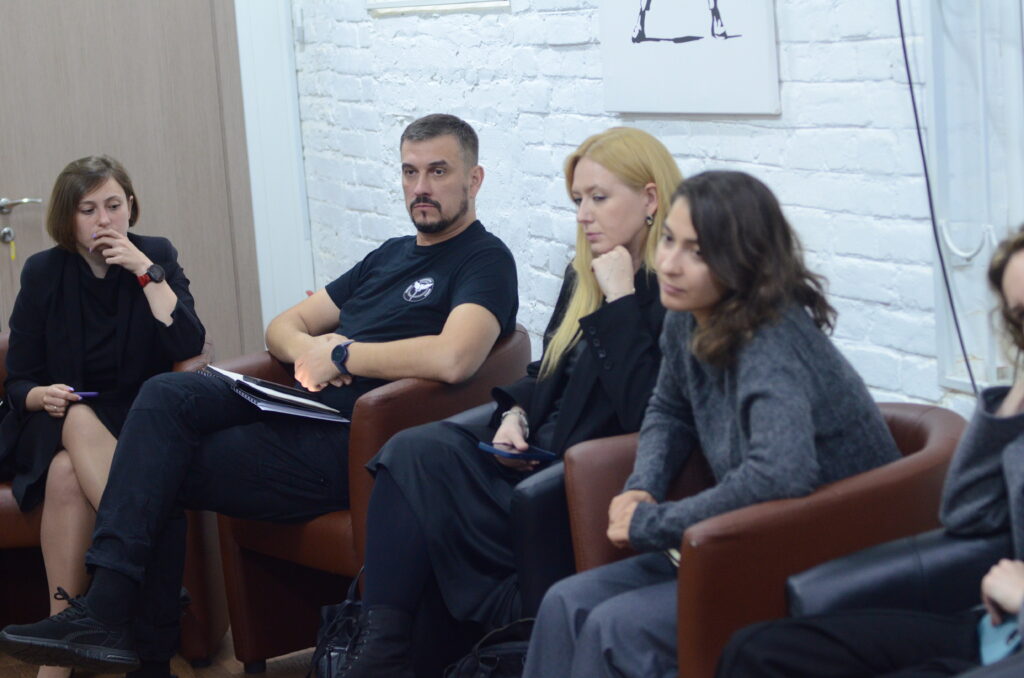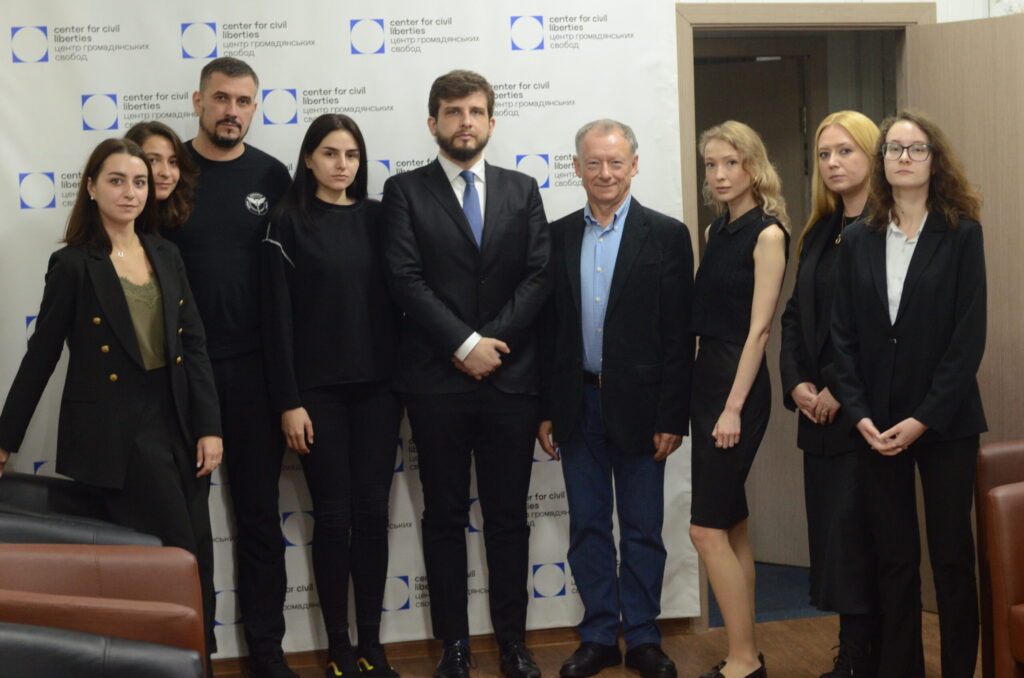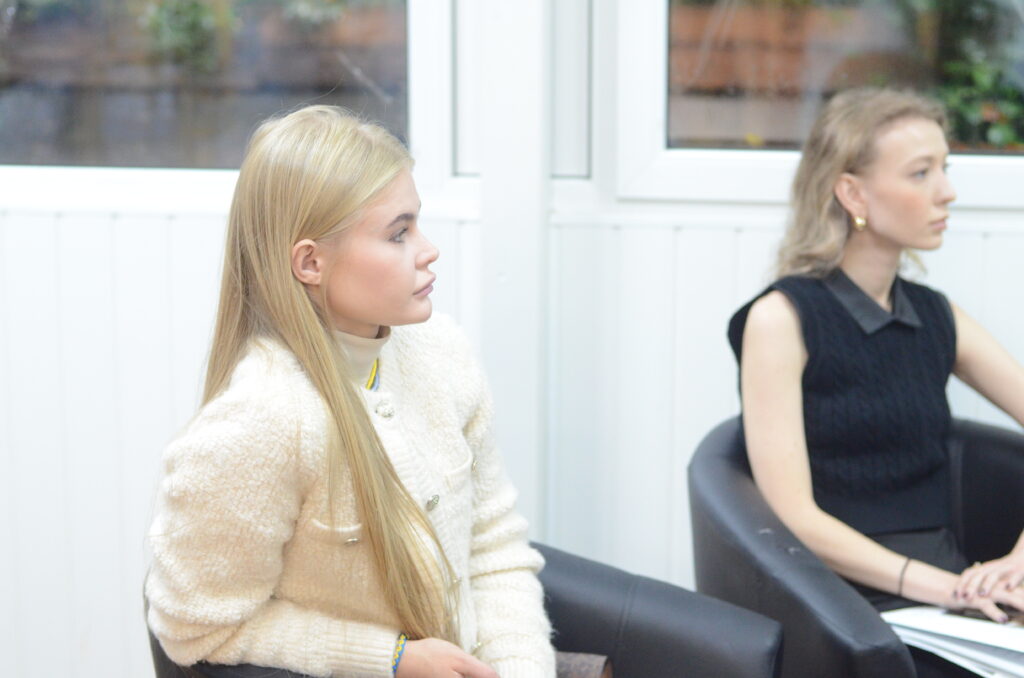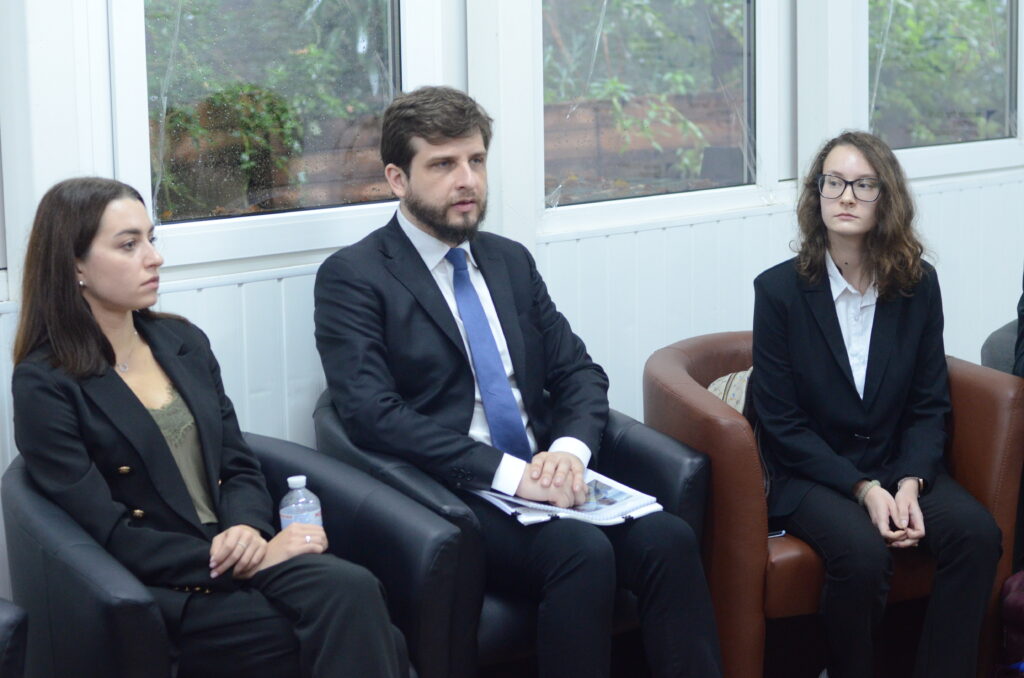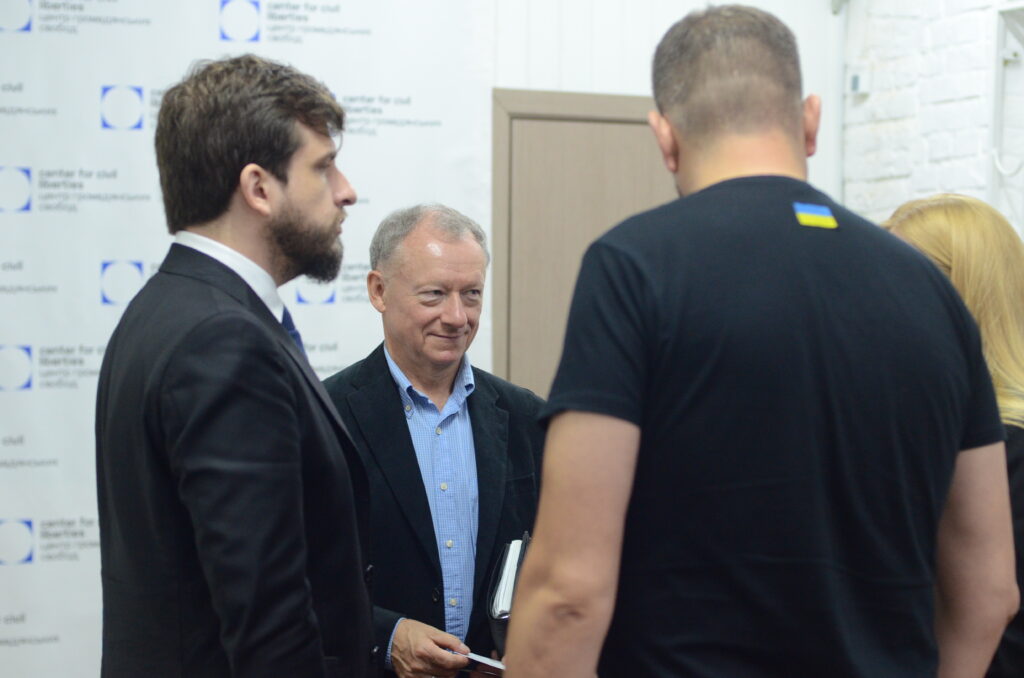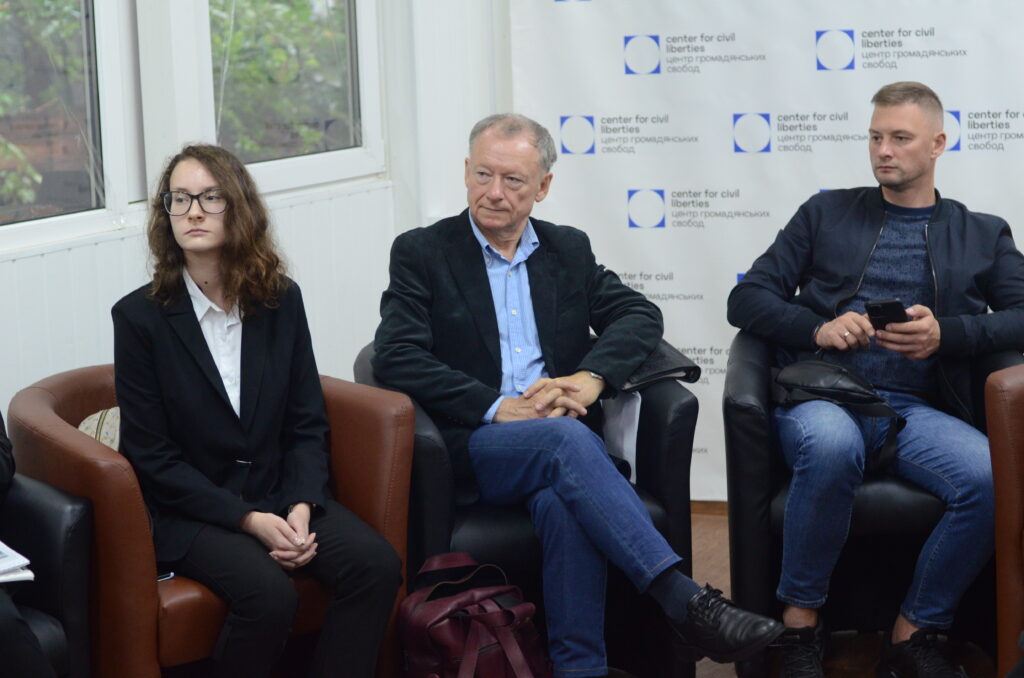Argentine’s MP in Parlasur meets with human rights activists and families of Ukrainians held in captivity
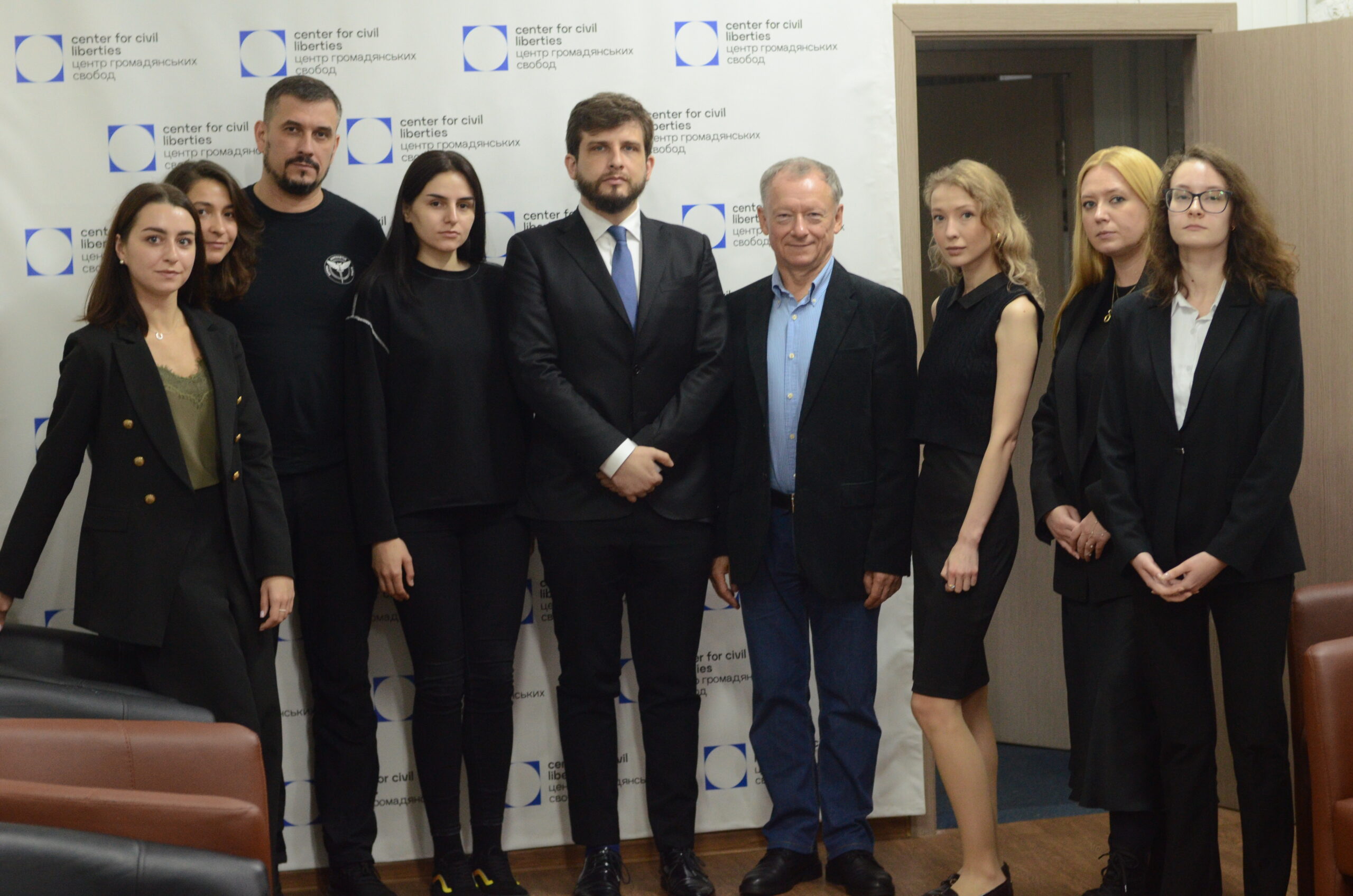
On Monday, 7 October, the Centre for Civil Liberties was visited by an Argentine delegation headed by Ivan Dubois, Argentine’s representative in the Parliament of the Southern Common Market (a parliamentary institution of Mercosur — an international trade bloc comprising Latin America’s most powerful countries). The meeting was attended by human rights activists, a representative of the Coordination Headquarters for the Treatment of Prisoners of War, relatives of illegally detained civilians and prisoners of war, and a Ukrainian woman — a survivor of the Russian captivity.
In his opening remarks, Mykhailo Savva, Member of the Expert Council of the Centre for Civil Liberties, said that Russia was currently detaining more than 7,000 civilians illegally, as evidenced by the data available at the Centre for Civil Liberties. The number of prisoners of war may not be disclosed at this time. Yet both civilians and servicemen are often held in terrible conditions, suffering both physical and mental abuse. Mr Savva also presented the Strategy for the Release of Civilians — suggestions by the Centre for Civil Liberties’ proposals on ways to put pressure on Russia to release Ukrainian civilians illegally detained by the Russian side in the course of the armed conflict.
Anastasiia Savova and Roman Mykolenko told the stories of their relatives who are currently being held by Russia. Anastasiia is the daughter of a prisoner of war — defender of Mariupol who volunteered for the war in 2015 and defended Mariupol and Azovstal in 2022. He was kept in Olenivka, Taganrog, and Kursk Pre-trial Detention Centre 1, but was taken to an unknown location after the Kursk operation began. Roman is the son of an illegally detained 64-year-old civilian from Hostomel, who was taken from his home in March 2022. Roman had been trying to find any information about his father for a long time, eventually receiving a brief answer that he would not be returned until the war was over.
Mariana Checheliuk shared the story of her captivity. After the full-scale invasion began, she and her younger sister hid from Russian shells behind the walls of the Azovstal Iron and Steel Works. Following the evacuation of civilians from Azovstal, the sisters were separated in a Russian filtration camp. Mariana was first taken to the Donetsk PTDC, then to a colony in Olenivka, and later to a prison in Taganrog. Mariana suffered numerous tortures during her captivity: she was starved, beaten and abused, as she relayed at the meeting.
Ivan Dubois noted that he understood how difficult it was for the relatives to talk about the loss of freedom or war crimes. He also thanked Ukrainian civil society organisations that document these crimes.
Solomiia Stasiv of the Clooney Foundation for Justice spoke about ensuring liability through universal jurisdiction for crimes committed in Ukraine, Kateryna Mitieva of Truth Hounds shared case studies of detention of the Zaporizhzhia NPP’s employees, while Kateryna Rashevska, a legal counsel at the Regional Centre for Human Rights, spoke about violations of children’s rights during the Russian aggression against Ukraine. The meeting was also attended by Alina Rohach, Project Manager of the Spain and Latin America Cooperation Programme at the Transatlantic Dialogue Centre, and Inha Vyshnevska, Co-Founder of Resilient Ukraine CSO.
FYI: Ivan Dubois is a member of Parlasur — the parliamentary assembly of the Mercosur economic union. The visit was organised by the Transatlantic Dialogue Centre CSO and Resilient Ukraine CSO.

This event is funded by the European Union. Its contents are those of the Center for Civil Liberties and do not necessarily reflect the views of the European Union.

